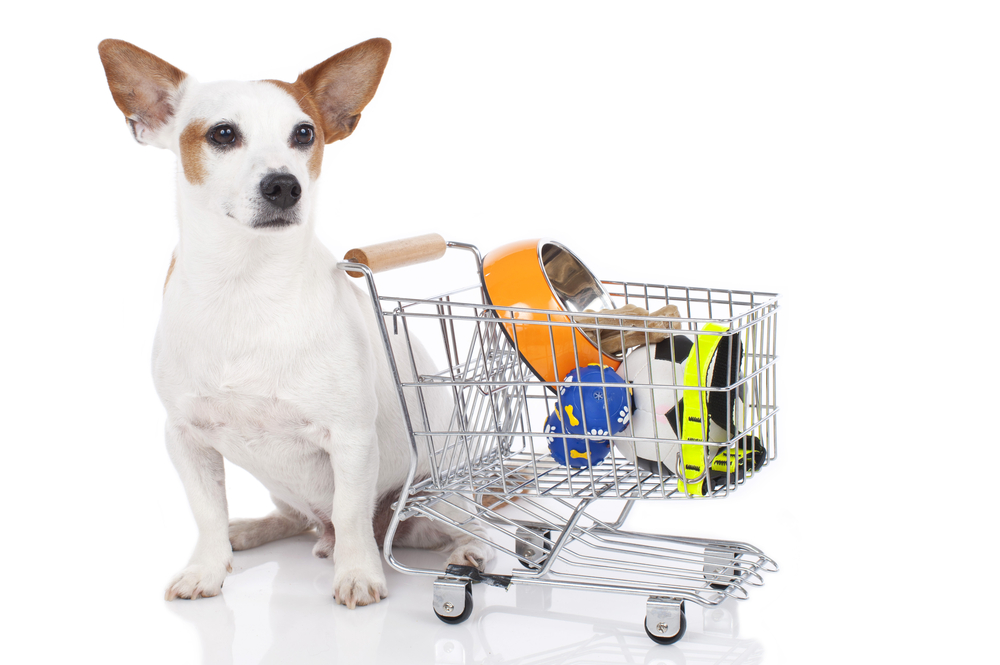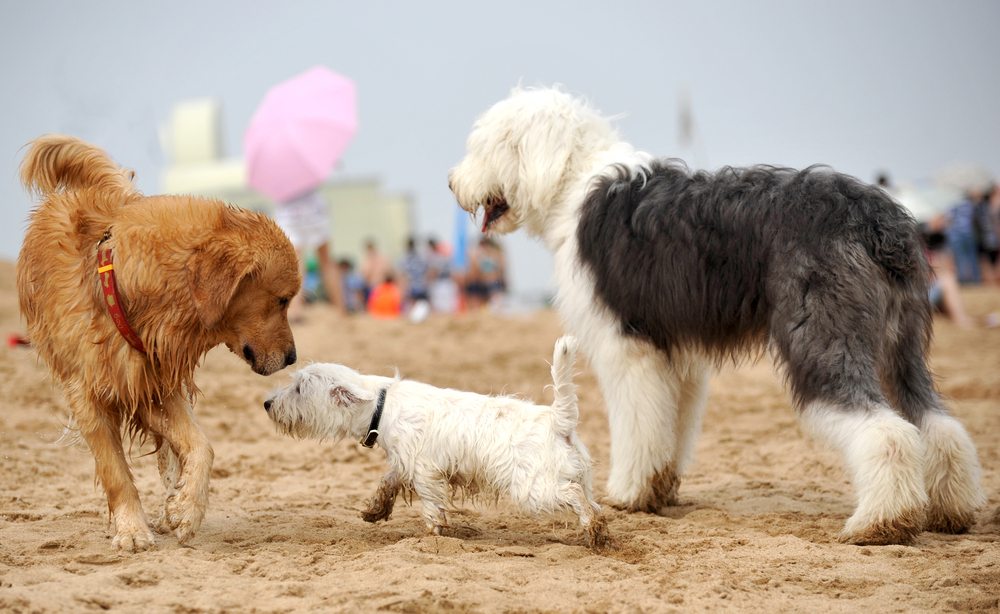While we typically discourage giving living creatures as gifts, we understand that there’s nothing quite as magical as watching your child’s eyes light up when you surprise her with a new puppy. And, if you presented your favorite human with a new pet this holiday season, you may be reading this and wondering what you were thinking as you catch the new addition doing her business on the living room floor.
Not to worry. Here are some tips to help get your new pup started on the right foot.
Puppy-proof the home
Puppies are little balls of fluff, armed with razor-sharp teeth and a tiny bladder. During the teething and house-training phase of a new puppy, be prepared for the worst. Expect accidents—of both the liquid and solid variety—and tooth marks on furniture, shoes, and yourself. Set your new bundle of joy up for success by puppy-proofing your home with the following steps:
- Pick up any items that your puppy might consider a chew toy. Puppies learn about their environment by putting everything in their mouths, so be sure to pick up shoes, backpacks, electrical cords, or anything that is mouth-level with your new pet. After a few of their favorite things are chewed, your children might even be motivated to start picking up after themselves.
- Prevent access to areas that are difficult to supervise. Just like with children, silence can be suspicious. If you can’t see your puppy, assume she is getting into mischief. By keeping your new pet in the same room with you, house-training and appropriate chewing will be significantly easier to teach.
- Choose the correct size of crate. Crate train your puppy from day one to limit destruction within your home. Select a crate that is large enough for your pup to stand up, lie down, and turn around, but not much larger. Choosing an appropriately sized crate facilitates house-training, potentially making this difficult task a breeze. Also, once your pet is accustomed to her crate, she will view it as a safe space of her own and will gladly relax inside.
- Load up on supplies. Spending hours browsing the aisles of the pet store can be an overwhelming task. Create a list before stepping foot inside. Be sure to include:
- Grooming supplies, such as nail clippers and brushes
- Food and water dishes
- Food and treats appropriate for your puppy’s size and age
- Chew toys
- Bedding
- Collar or harness and leash

Set a schedule
The key to training your new puppy is consistency. All pets thrive on a set schedule, especially puppies. Have each member of the family in charge of a key aspect of puppy care, and stick to a routine so nothing gets missed. Create a schedule detailing:
- Feeding times
- Bedtime
- Walks
- Training sessions
- House-training
Without a routine, it will be difficult to house-train your new pup. Use the same door, the same command, and the same praise and reward every single time you take your pet outside. She will quickly catch on to what she is supposed to do if the pattern is consistent.
Socialization and training
More pets are surrendered to animal shelters for behavioral reasons than any other cause. Early training and socialization are keys to a happy, well-adjusted pet. Puppies form their views of the entire world by the time they are 16 weeks old. Enrolling in a quality puppy class will ensure that your pup knows how to appropriately interact with other animals, people, and strange objects and environments. We cannot stress enough how important early training and socialization are for puppies to prevent fear, aggression, and anxiety issues later in life.

Veterinary care
If you added a new puppy to your family recently, don’t forget to schedule an appointment with our office as soon as possible. According to the American Animal Hospital Association, puppies should be vaccinated every 2–4 weeks between the ages of 6 and 16 weeks. All puppies should receive the following core vaccines:
- Canine distemper
- Adenovirus 2
- Canine parvovirus
- Parainfluenza virus
- Rabies
- Leptospirosis
And, depending on various lifestyle factors, we may recommend the following additional vaccines:
- Bordetella
- Lyme disease
- Canine influenza
Questions about your new puppy? Ready to begin planning for a future addition? Give us a call.







Leave A Comment